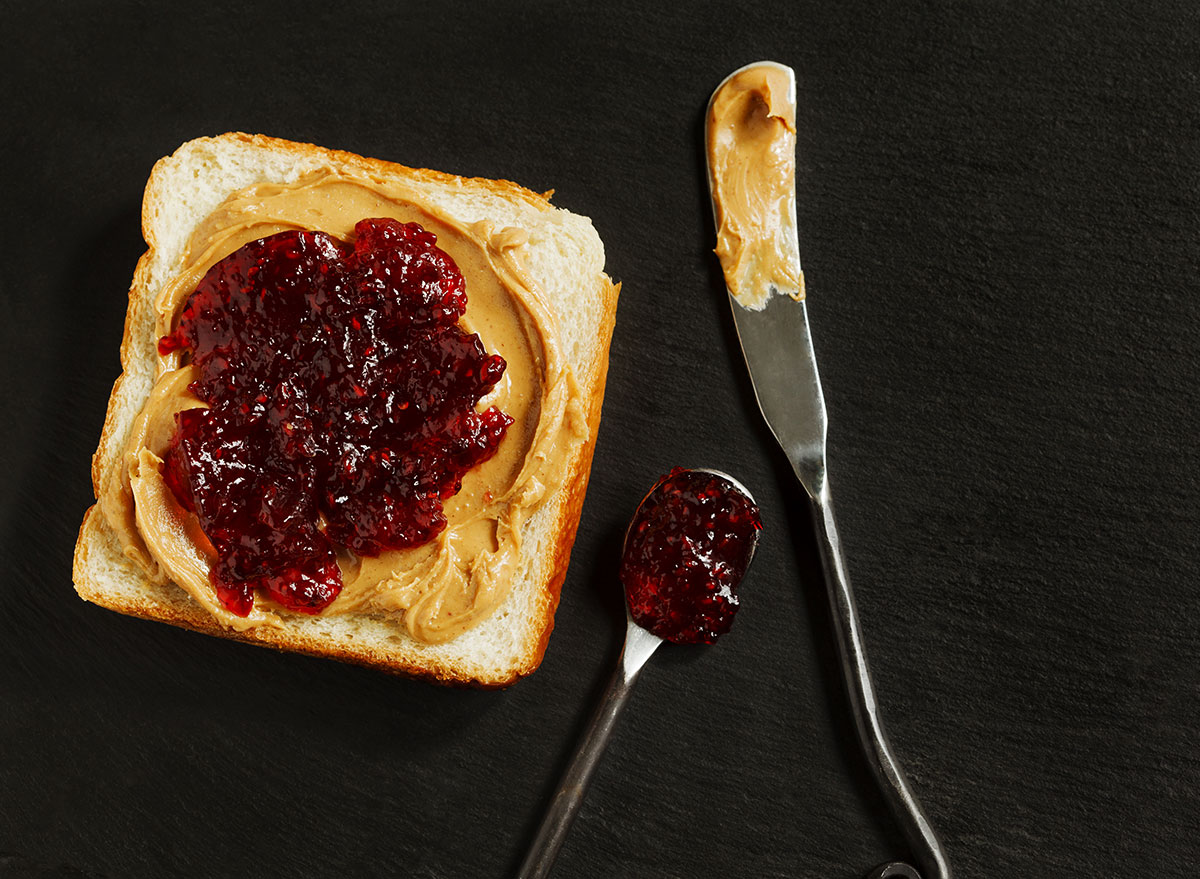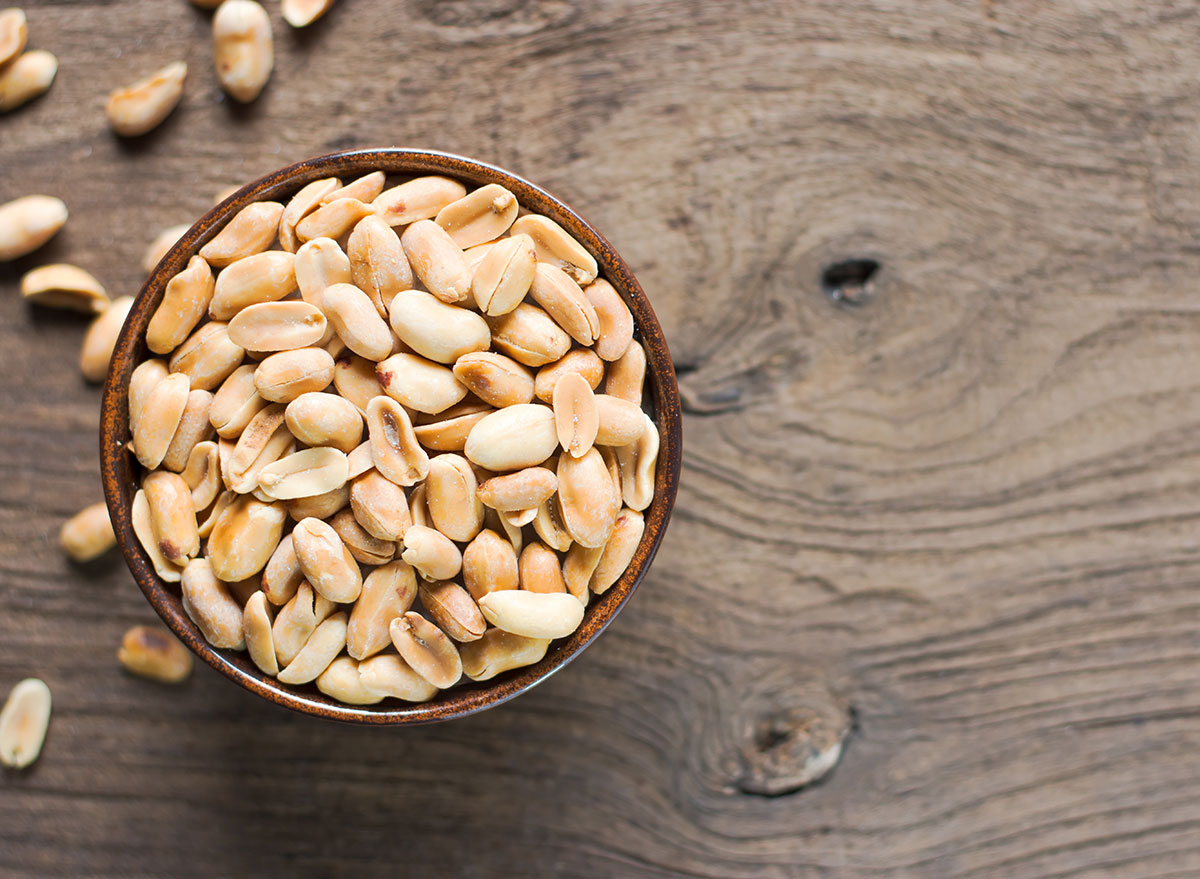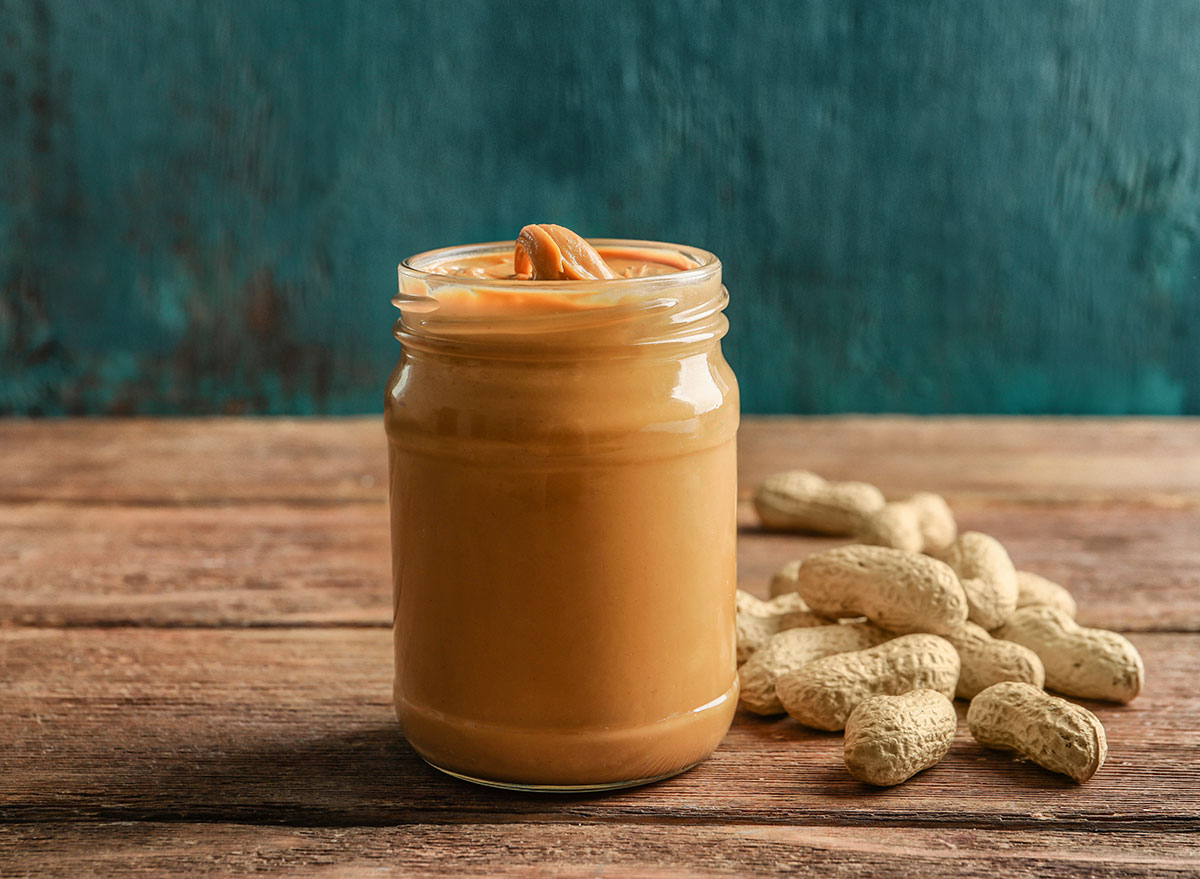Are you a self-proclaimed peanut butter aficionado or do you just have an appreciation for the creamy spread?
Regardless of where you stand (assuming you even like the stuff), peanut butter is loved by many people, which is why we deemed it necessary to unpack the potential side effects (not all of which are bad!) you could have from eating the delicious nut butter.
After eating peanut butter, you may experience…
Acid reflux or heartburn.

Unfortunately, peanut butter can cause some major discomfort in your chest and throat. Why? Peanuts are higher in fat than some other nuts, which means they aggravate what's called the lower esophageal sphincter (LES), a bundle of muscles that look like a flap at the end of your esophagus. Fatty foods can cause the LES to relax—but not in a good way. You need your LES to stay strong and mighty because it's what seals the bottom of your esophagus and protects it from stomach acid.
So, when fatty foods make your LES relax, stomach acid can creep up into your esophagus, giving you symptoms of acid reflux and heartburn. Ouch! However, as long as you're eating the nut butter in small servings (about 2 tablespoons per serving) throughout the week, you may avoid this problem altogether.
Difficulty swallowing.

Aside from taking too big of a spoonful of peanut butter and having that feeling that you literally cannot swallow without a glass of water in hand, there's another reason peanut butter could be making it hard for your esophagus to carry out this normal function. You could have a slight allergy to peanuts, and not know it, which may be causing eosinophilic esophagitis (EoE). Yep, that's a mouthful. According to the Mayo Clinic, EoE is a chronic immune system disease that can cause inflammation in the esophageal tissue and make it difficult to swallow.
Food allergies, along with other risk factors such as environmental allergies and asthma, can cause EoE to develop. In addition, having repeated bouts of acid reflux could exacerbate inflammation in the esophagus. So, if you typically get acid reflux after eating peanut butter and also feel like food is getting trapped in your throat, be sure to visit a gastroenterologist to see if you can get tested for food allergies and perhaps an endoscopy.
Inflammation.

Peanuts have omega-6 fatty acids, which can have an inflammatory effect on the body if you have too much of them. As Sydney Greene, MS, RD told us previously, "Though safe and even beneficial in moderate amounts, the issue with omega-6s is that most Americans consume more [of it] than omega-3s, which throws off a healthy ratio. When the ratio of omega-6 to omega-3 leans more toward 6, more inflammatory processes can occur in the body."
Omega-3 fatty acids, on the other hand, help to reduce inflammation in the body, so it's important that you're eating more of these types of foods (walnuts, salmon, flaxseed, oysters) to ensure that inflammation in your body is kept to a minimum. This is important seeing as chronic inflammation can have a negative impact on your tissues and organs if left unaddressed.
Improved heart health.

At the same time, because peanuts are rich in these unsaturated fatty acids, they are a much better substitution for foods that are loaded in saturated fat (think, processed foods and red meat). Peanut oil is exceptionally rich in oleic acid, which is believed to help maintain good cholesterol levels (HDL) and blood pressure, both of which are key factors for optimal heart health. This is especially the case when peanuts are substituted for unhealthy fats in your diet.
Weight gain.

Peanut butter is caloric, so, you could gain weight if you eat too much of it—all the time. Remember, just two tablespoons of peanut butter clocks in at just under 200 calories. Keep that in mind as you slather your toast with the nut butter. As is the case with most foods, everything in moderation, right?